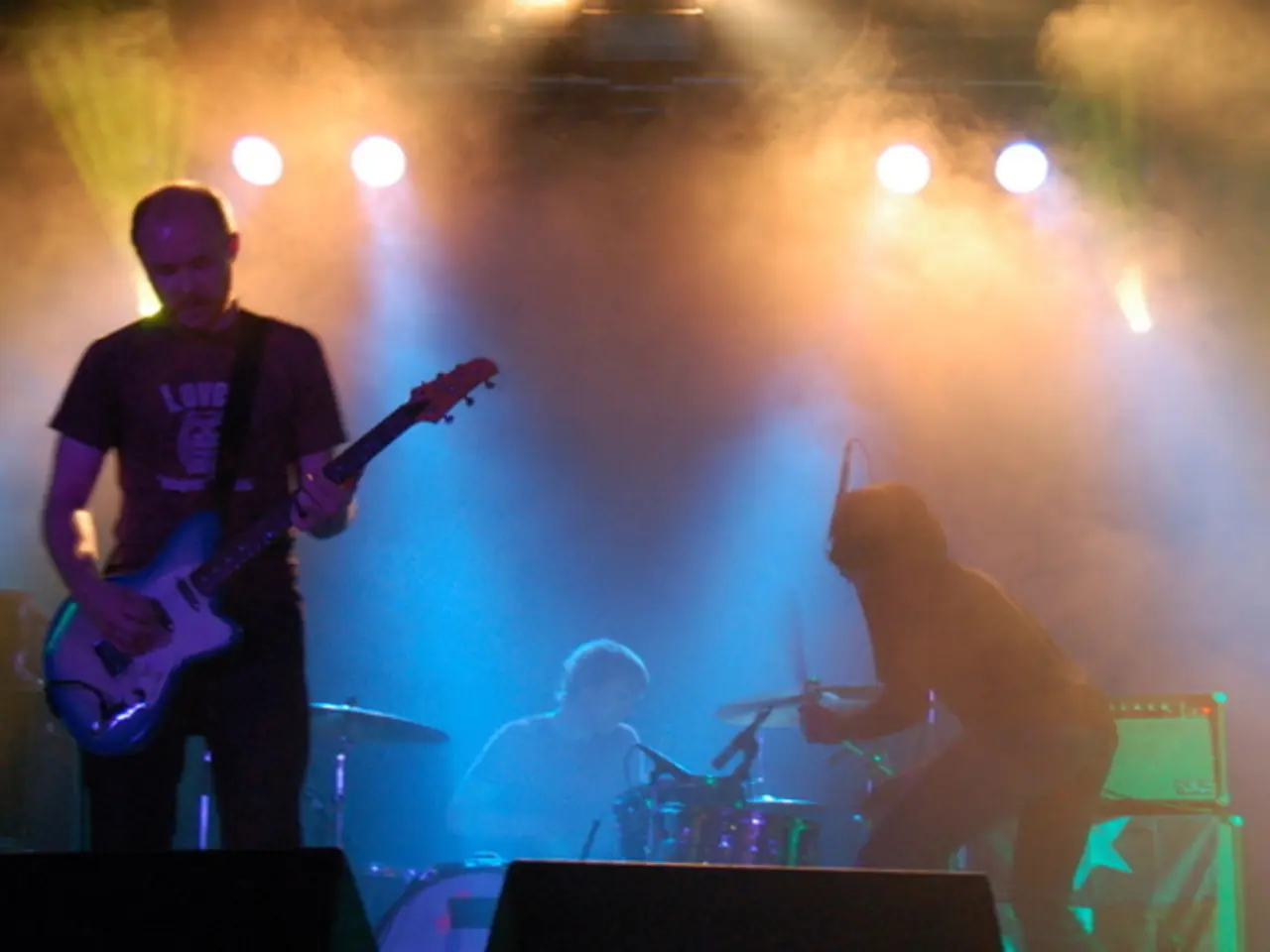Are performances often at such high volumes that ear protection is necessary?
In the bustling city of Philadelphia, two distinct worlds collide: healthcare and music. Clinical audiologists Mary Kim of Penn Medicine and Anna Bixler of Jefferson Health are advocating for a simple yet crucial accessory for concert-goers – high-fidelity earplugs.
Mary Kim compares earplugs to sunscreen, emphasising their importance in protecting oneself from permanent, irreversible noise damage. Sean Svadlenak, production manager at the independent music venue MilkBoy, explains that instruments and vocals on stage need to be louder than the next loudest thing for everyone to hear.
Enter high-fidelity concert earplugs. These smart devices reduce the overall volume of music evenly across all frequencies while preserving sound clarity and detail. This means that vocals and instruments remain crisp and vibrant, maintaining the integrity of the music at safer listening levels.
These earplugs achieve this through high-fidelity acoustic filters or proprietary acoustic resistors, which provide an even reduction in sound intensity, avoiding the muffling common with foam plugs. They are designed for comfort, with soft materials like silicone supporting hours of use without causing ear fatigue.
Moreover, models offer variable attenuation, enabling users to choose how much sound reduction they want without distorting music quality. With options ranging from 16dB to 24dB, concert-goers can tailor their experience to their preference.
Anna Bixler, another clinical audiologist at Jefferson Health, uses earplugs that glow in the dark for concerts, especially electronic dance music. Anna Reed, general manager at MilkBoy, mentioned that loud music can be a relaxing and calming experience for some people. However, it's crucial to remember that protecting one's hearing is paramount.
Svadlenak emphasises the importance of wearing earplugs at concerts to protect hearing and be able to listen to favourite artists for many more years. Audiologists, staff at music venues, and musicians often recommend concert-goers wear earplugs to protect their hearing.
The research of David Welch, a professor of audiology at the University of Auckland in New Zealand, sheds light on why people like loud music. According to his research, people learn to associate loud music with enjoyable experiences, similar to how Ivan Pavlov trained dogs to associate a bell with food.
In 2017, Benjamin Schurr, a bass guitarist for the band Song People, suffered permanent hearing damage in his right ear due to attending a loud house show in Washington D.C. This serves as a stark reminder of the importance of protecting one's hearing at concerts.
For a deeper dive into this topic, tune into "The Pulse" podcast episode titled "How Noise Affects Our Health," available on Apple Podcasts, Spotify, and various other podcast platforms.
In conclusion, high-fidelity earplugs are a game-changer for concert-goers. They function like a volume knob, turning down harmful loudness evenly while maintaining the richness and precision of the musical experience, thus protecting hearing without sacrificing sound quality. So, the next time you're at a concert, remember to protect your hearing and enjoy the music for years to come.
Science continues to highlight the importance of hearing health and wellness in our daily lives, especially when it comes to medical-conditions like noise-induced hearing loss. By incorporating high-fidelity earplugs into their routine, concert-goers can preserve their hearing amidst the high decibel levels and enjoy music in a healthier and more sustainable manner, as supported by studies on nutrition and health-and-wellness.




